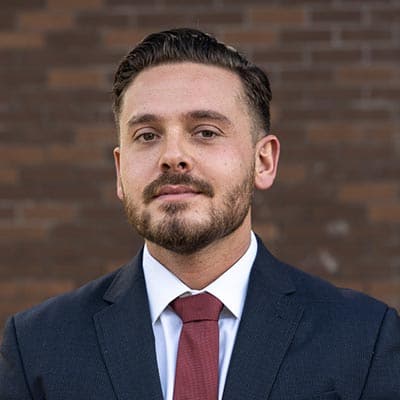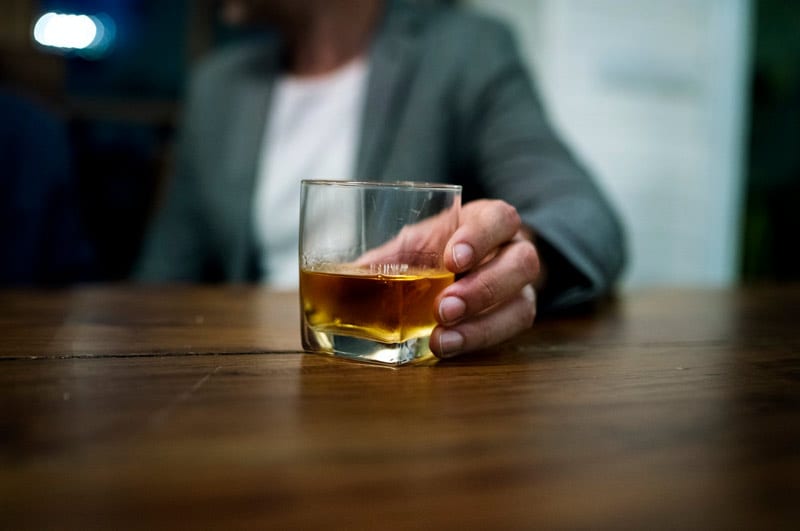Addiction and anxiety are serious disorders that can damage your physical and psychological wellbeing. In many cases, treatment is the only way to break the cycle.
While anxiety occurs due to our body’s natural response to stress, addictions usually develop over time. About 8.1% of the total United States Population (21.7 million people) is either in need of or regularly getting treatment for substance use disorders. Around 18% of Americans experience some form of anxiety-related disorders. Both of these conditions frequently occur together. How? Let’s See!
A glass of wine or a few drinks at a get-together can be casual for some. However, if you have an anxiety disorder, alcohol or other substances can be dangerous. Sadly, people with anxiety issues are 2 to 3 times more likely to have substance use disorders. In the United States, around 20% of people with anxiety disorders struggle with alcohol or drug addictions. And around 20% of those facing substance use disorders have mood-related or anxiety problems.
Some people with addiction and anxiety disorders experience the symptoms independently. Experiencing both at the same time can be even worse. When that happens, the two should be treated together as co-occurring disorders. Today, we will dig a bit deeper to understand what these disorders mean separately and together.
What Are Anxiety Disorders?
It is quite normal to be anxious. Things like moving to a new place, appearing onstage for a speech, or taking an exam can lead to it. Even though it is unpleasant, anxiety can motivate us. This can be called ordinary anxiety. It comes and goes but never messes up your daily life.
With an anxiety disorder, on the other hand, the fear rarely or never goes away. It’s intense and exhausting. This type of anxiety prevents you from enjoying your daily life. At times, it gets so bad that you fear entering an elevator, crossing the street, and even leaving home. If not addressed at the right time, it can make life miserable.
What Is Addiction?
Addiction is a complex condition. It has taken almost 50 years of research to understand how it works. The primary conclusion of this research is that addiction is a disease and not just an individual’s choice. While addiction is mostly associated with substance abuse, that is not the only kind. According to experts, there are two types of addiction disorders.
Chemical addiction: involves the use of substances like drugs or alcohol.
Behavioral addiction: involves compulsive and persistent behaviors, such as gambling, porn, video games, and shopping.
Types Of Treatment
If a person is suffering from both anxiety disorder and an addiction problem, both disorders need to be treated. If you choose rehab only and avoid anxiety treatment, the outcomes can be worse. Such patients are more likely to experience medical issues, suicidal thoughts, or early death. Medication can help a person attain a healthy lifestyle that also involves a proper exercise routine and a healthy diet. But the best results are achieved if the treatment includes medication and therapy.
Type Of Medications
Treatment centers that specialize in co-occurring disorders can prescribe medications to treat anxiety. Antidepressant medications are often used to treat anxiety. They mainly include both SSRIs (selective serotonin reuptake inhibitors) and SNRIs (selective norepinephrine inhibitors).
Benzodiazepines are prescribed for short-term mood or anxiety disorders. They include drugs like Xanax and Valium. As they have the risk of addiction, experts do not recommend this class of drugs for most people with a history of substance abuse.
Disulfiram (Antabuse) and acamprosate (Campral) are often used in the treatment of alcohol addiction. Disulfiram is responsible for the creation of unpleasant reactions in the body when a person drinks. Acamprosate reduces the withdrawal symptoms. Even though Naltrexone is intended to combat opioid addiction, it is sometimes used to treat alcohol use disorders.
Therapies
Several types of therapies can be helpful to treat co-occurring addiction and anxiety disorders. Let us take a look at them one by one:
- Motivational interviewing
- Breathing training
- Cognitive-behavioral therapy
- Exposure therapy
- Matrix model
- Relaxation training
- Contingency management
Motivational Interviewing
This encourages the patient to participate in the process of change actively. People with addiction disorders experience simultaneous and contradictory attitudes or feelings. This is also termed ambivalence. Motivational interviewing helps patients acknowledge it and work it out.
Breathing Training
This involves learning to breathe deeply from the diaphragm, hold the breath, and exhale slowly. This technique is helpful to reduce anxiety.
Cognitive-Behavioral Therapy
Also known as CBT, this approach encourages patients to change their perspective about drugs and utilize skills to deal with stress. It also teaches patients to understand the triggers of substance use and learn to cope with them.
Exposure Therapy
This is a type of CBT. It gradually exposes a person to a thing that he or she fears the most. It helps the person manage anxiety at every level of the process.
Matrix Model
This is the most common therapy used to treat stimulant addiction. It involves drug education, family therapy, 12-step groups, individual therapy, and urine drug screen.
Relaxation Training
This is also related to CBT and exposure therapy. It involves meditation, self-soothing technique, deep breathing, yoga, perfumes, scents, and other techniques for improved mindfulness.
Contingency Management
This method uses rewards for negative drug screening results and other desired behaviors. When your drug tests are negative, you are rewarded with gift cards, vouchers, etc., to motivate you to stay engaged in the treatment program.
Recovery Programs
Two types of recovery programs are primarily used across the United States.
- Outpatient Treatment
- Inpatient Treatment
Outpatient Treatment
People facing an anxiety or addiction disorder can voluntarily choose this type of treatment. It varies from person to person, depending on how often he or she attends the recovery program. While some patients attend the treatment once or twice per week for 2-3 hours, others may attend daily for 4-6 hours.
Inpatient Treatment
This involves 24/7 supervision and medical assistance for patients to help them battle anxiety and addiction disorders. There are a couple of other recovery programs that can be integrated with both inpatient and outpatient treatments. They come into play as a follow-up care routine to the initial plan.
A 12-step program is one example of this. This is a type of aftercare for patients who have completed an inpatient or outpatient recovery program. However, it can also be used as a primary recovery program.
Another example of this is support groups. These groups are run by a therapist or people who have experienced or are currently dealing with anxiety and substance use disorders. Participants can meet other people facing the same situation and discuss solutions and ways to manage stress.
Final Thoughts
People struggling with addiction or anxiety should not wait to seek help. Otherwise, it can lead to adverse results that can affect your everyday life. You can attend a recovery program or support group to share your views on it. Doing this prevents the bottling up of your emotions and releases stress. You can also turn to different therapies and medication for help.
If you or someone you know experiences mental health issues, it is important to seek help from a qualified professional. Our Resource Specialist can help you find expert mental health resources to recover in your community. Contact us now for more information on this free service to our users.

Image by www.rawpixel.com
Resources to Recover and Our Sponsor Laurel House Celebrate Black History Month
February is Black History Month, a time for celebrating the outstanding achievements of Blacks and African Americans and their central role in US history. It is also a time to recognize the struggles Black people have faced throughout the history of this nation and give tribute to the strength and resilience of generations of Black Americans who have risen above adversity.
Black History Month originated from an idea by Harvard-educated historian Carter G. Woodson, who wrote the Journal of Negro History in 1916 to herald the achievements of overlooked African Americans in US history and culture. In 1926 he led an effort by the Association for the Study of Afro-American Life and History (ASALH) to officially declare the second week of February as “Negro History Week.” These dates align with the birthdays of two crucial figures in Black American history: Abraham Lincoln (February 12, 1809), who signed the Emancipation Proclamation officially ending slavery in the United States, and the Black American abolitionist and author Frederick Douglass (February 14, 1818), an escaped slave who is widely considered the most influential civil and human rights advocate of the 19th century. In 1976, President Gerald Ford gave official governmental recognition to the observance by declaring February “Black History Month.”
Without the contributions of Blacks and African Americans to more than 500 years of US history, culture, entertainment and the arts, science, athletics, industry and the economy, public service, and the Armed Forces, we would not be the country we are today.
The opinions and views expressed in any guest blog post do not necessarily reflect those of www.rtor.org or its sponsor, Laurel House, Inc. The author and www.rtor.org have no affiliations with any products or services mentioned in the article or linked to therein. Guest Authors may have affiliations to products mentioned or linked to in their author bios only.
Recommended for You
- Why Gen Z Is Drinking Less: How a Generation Is Redefining Social Life Without Alcohol - January 22, 2026
- The Hidden Cost of Missed Diagnoses: Neurodivergence, Trauma, and Mental Health - January 19, 2026
- How to Change Unhealthy Habits: What a Therapist Learned from Hundreds of Clients - January 15, 2026





